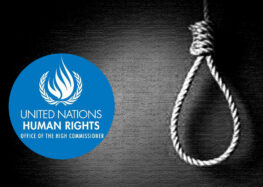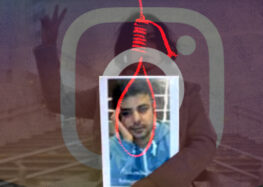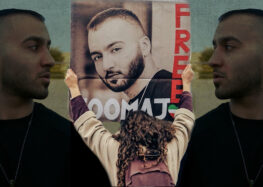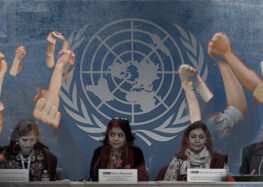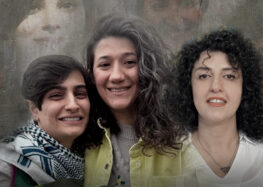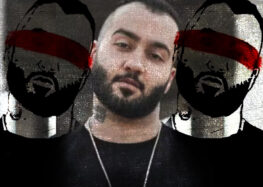Despite Complaints About Torture, Forced Confessions, and Lack of Due Process, Brothers Fathi Hanged in Isfahan
 Two brothers, Mohammad Fathi, 28, and Abdollah Fathi, 27, were hanged Tuesday morning inside Isfahan’s Dastjerd Prison. On Monday, the family of the two executed prisoners told the Campaign that the case lacked due process and that the authorities had not paid attention to the irregularities of the case in reaching a verdict and issuing the sentence. The Iranian police claim that the two men were involved in an armed robbery incident in the northern province of Mazandaran. Their father, however, told the Campaign that their confessions to this crime had been extracted under torture. The Iranian officials have not commented on such allegations.
Two brothers, Mohammad Fathi, 28, and Abdollah Fathi, 27, were hanged Tuesday morning inside Isfahan’s Dastjerd Prison. On Monday, the family of the two executed prisoners told the Campaign that the case lacked due process and that the authorities had not paid attention to the irregularities of the case in reaching a verdict and issuing the sentence. The Iranian police claim that the two men were involved in an armed robbery incident in the northern province of Mazandaran. Their father, however, told the Campaign that their confessions to this crime had been extracted under torture. The Iranian officials have not commented on such allegations.
The execution was carried out at a time when the lawyer and the family had raised a number of questions about the irregularities and unlawful acts during the process that had led to issuing the death sentence.
Earlier today, the two brothers’ father, Bijan Fathi, confirmed an announcement by the Iranian authorities about the imminent execution of the two young men and spoke with the International Campaign for Human Rights in Iran about their impending execution. “My sons are scheduled to be executed in Isfahan’s Dastjerd Prison on the charge of moharebeh (enmity with God) tomorrow morning. But neither the two of them, nor their attorney, and not the family have been served with the notice of this. Someone called their mother from the prison this morning and said that the sentence will be carried out tomorrow morning and she could come to see them for the last time today at 3:00 p.m.,” he told the Campaign.
Last year, Mohammad and Abdollah Fathi were arrested in the northern province of Mazandaran on the charge of theft. Their trial court was held in March at Branch 4 of Isfahan Revolutionary Court, with Judge Moghtazi presiding, and the two men were informed of the additional charge of moharebeh at that time, and subsequently sentenced to death, while the other five suspects in the case were acquitted of the charges. The two men’s sentence was upheld in an appeals court.
At a press conference in April, Commander Ahmadreza Radan, Deputy Police Commander informed reporters about the arrests of members of an armed robbery team who had committed robbery in Karaj. According to Commander Radan, in addition to the armed robbery incident, members of this team had also been involved in other robbery cases in Isfahan. “Following arrests of the suspects, during the search of their hideout, two Kalashnikov rifles, three handguns, CB radios, eight cellular phones, fake identification documents, $18,000 in cash, and an expensive car were also discovered,” said Ahmadreza Radan.
In a 1 March letter addressed to the Isfahan Army Court and Isfahan Prosecutor, Abdollah Fathi filed a complaint against individuals he called “my torturers,” by the names of Colonel Hosseinzadeh, the Isfahan Police Chief, Major Ghodratollah Rahimi, Lieutanent Bahrami, and several other military personnel, stating that he had been tortured by flogging, severe beating, and threatened with rape. A day later, he also wrote a letter to the Judges Courts and filed a complaint against Judge Moghtazi, Mohammad Reza Habibi, Deputy Prosecutor of Isfahan, and Najafi, the Investigative Judge of Branch 10 of Isfahan Courts, stating that he and his brother had not received due process in their trials and that their complaints had not been addressed.
Judicial authorities announced the two men’s impending execution while the family of the two suspects has consistently stated that the confessions in their case were extracted under torture. The two suspects filed an official complaint about this, but the complaint was not addressed. The family also objected to the death sentences due to the various ambiguities in the case file and based on statements by the two suspects. The two men’s father also told the Campaign that his sons had medical problems the files for which had been presented to judicial authorities, for which they never received any replies.
The two men’s father, Bijan Fathi, told the International Campaign for Human Rights in Iran that contrary to what the judicial authorities have announced, his sons’ real charges were political and not robbery. “We still don’t understand whether their crime is moharebeh (enmity with God) or robbery. If it’s robbery, why were they tried in the Revolutionary Court? This court is for political charges. And if it’s moharebeh, they were not at war with God and the regime,” said Bijan Fathi, noting his own and his brother-in-law’s political activities.
“Their lawyer raised the issue that essentially, the Isfahan Revolutionary Court was not qualified to review this case, and because the suspects were arrested in the Mazandaran Court’s jurisdiction, their case should have been reviewed by the Mazandaran Court, but the Revolutionary Court did not pay attention,” Fathi added.
“They were wartime children in Abadan, and being near explosions, they had both suffered brain damage and developed stutters. Three-four years ago, their illness resurfaced. We gave their medical files to the court to show that they were both sick, but the authorities did not pay any attention and did not send them to the Medical Examiner for examination. That’s why the lawyer had requested a suspension of the execution, asking for due process,” Bijan Fathi told the Campaign.
On principle, the International Campaign for Human Rights in Iran opposes death sentences and has repeatedly expressed deep concern about the increasing rate of death sentences over the past several months. In many cases, the judicial reviews are performed summarily, without proper legal basis, and based on confessions extracted under torture and duress.

